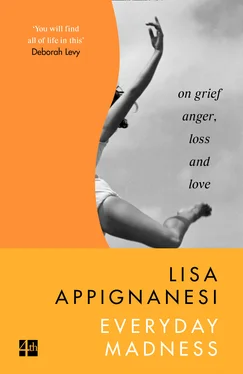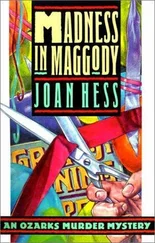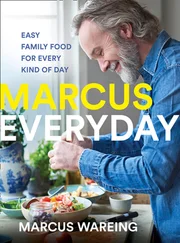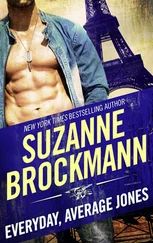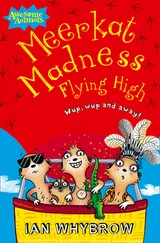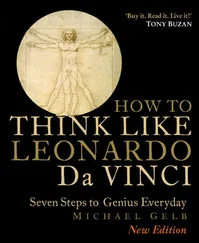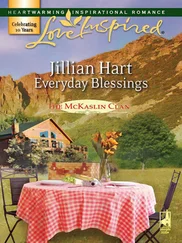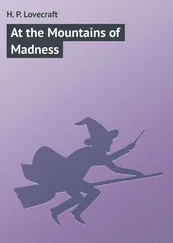I sat back and tried to take a deep breath. It caught on something. Maybe it was fury. The kind you can’t swallow. The kind that doesn’t let you breathe. I now started to look in earnest, pushing things aside, prodding, hating what I found, hating myself, hating him. I opened his wardrobe and started to heave out his clothes.
Some nine years before, we had split up. He was in the midst of what can only be called a mid-life crisis and passionate about a young woman. He was also crazy, crazier than any adolescent in the grip of lust and jealousy. Undone by it. The part of me that writes understood. This was another form of everyday madness, more familiar than so many others. He was a man obsessed.
I would have been prepared to tolerate a short burst of passion, but not the palpably self-destructive process he was engaged in and the harm it occasioned all round. In any event, the last person he wanted near him was me, with my Cassandra-like predictions, my world-weary plaints that made his trajectory more mundane than mud. Or comical, like a door slammed in a farce.
The abandonment so late in our coupled lives undid me. A hot, jealous fury attended my days, shrivelling everything in its wake, like a mountain fire. The only way I could seem to deal with the tearing apart of my life and the detritus it left behind was to throw myself into more and other ways. I was already active in English PEN: I took on the presidency. I became chair of the Freud Museum. I got Mad, Bad and Sad ready for publication. I found myself devising and editing a new series on ‘Big Ideas’ for Profile Books. On and on it went.
The rage and the need for distraction from it that attended the first parting of our ways was close kin to my mourning state, a kind of trial run of the emotions. Now, after his death, one historical moment collapsed into another. That second dismantling echoed the first. Pain always leaves deeper traces in memory than pleasure – and I was plunged back into an old, intolerable pain. I hated him and hated myself. Bits of myself and my past had to be torn out, emptied of their destructive charge and somehow sewn back in so that I could walk and run and speak as a functioning person, let alone love and still have a history.
Within both states I felt as mad and sad to myself as some of the historical figures that had peopled my books on the subject. If I didn’t quite make it to the condition of the ‘bad’, it’s only because I wasn’t altogether certifiable. The racing thoughts, the compulsions, the sudden mental absences or holes in time when I would find myself walking on a street I hadn’t set out for, these were just everyday madness inflected by loss and by grief. As long as I could get up in the morning and make a semblance of working or arranging the flowers and objects in the house, as long as the children were there, as long as I had to put on a face to greet them and to meet the faces I met, I would manage, manage it, manage myself.
The difference between the terrors of the first abandonment and the second was that after the first I could rail with friends about men’s antics and a woman’s lot. Now, there was only one person I could even begin to talk to, and then only sporadically. Back then, after a little less than a year, John pleaded that he wanted to return to his life, our life together. After a month of persuasion, I agreed. Many of my friends disapproved of what looked like my moral laxity, my lack of feminist firmness. But I preferred to be coupled, preferred my children to have their father in place. I like the familiar. I liked to have someone there to discuss days and ways and news with, to feel grounded. It was hard to laugh on one’s own. I liked to laugh. I liked ordinary life.
Already back then, I had a deep sense of the ways in which that ordinariness is so readily traversed by madness. We may be rational creatures, deeply individual, but loss illuminates just how readily the ever-uncertain fortress of reason crumbles, and how fundamentally our individuality is made up of our attachments to others.
One of the differences in the separation that mourning constitutes, apart from the major one of irreversibility, was that I wasn’t sanctioned from the outside to hate, to be angry. Composure was required; so was admiration of the lost one. And I had others to care for. Impossible for me to take on the capacious mantle of the vibrant Wife of Bath, who had buried six husbands. Or become one of those widows of whom Wilde’s Lady Bracknell could say, ‘I hear her hair has turned quite gold from grief.’ Or the amorous Merry Widow who gave her name to various bits of saucy lingerie. After all, I didn’t only hate.
I was caught in ambivalence, perhaps a deeper plight than the now fashionable term ‘cognitive dissonance’, which highlights the trap of feuding ideas, but not that of warring emotions, the kind that probably have deep roots in a time when language wasn’t to hand to make sense of things.
I was terrified that the other woman, any other woman, would turn up at the funeral. I suddenly had an acute sense of why Greek rites incorporated professional mourners – those women who, like so many Maenads, tore at their hair, wailed and keened to the elements, their dirges abstract public rituals. Part of me would have wanted to join them, or wholly to give mourning over to others.
But there were too many parts of me.
AFTER I HAD FOUND that first set of photos, I would creep into John’s study regularly. Sometimes his phantom stood over me as I plundered his desk and possessions for more signs of betrayal. He hadn’t been true to his word – he had never been true. The jealous thoughts spiralled, took wing, raced through Heaven (his) and Hell (mine) and I grew smaller and smaller, a bit of rag and bone in the gleaming arcade of his life. I scoured his obtuse computer for tell-tale emails. His diaries, ranked in a desk drawer like so many tin soldiers awaiting amorous campaigns, refused to give up any more than the signs of daily institutional battles. I looked for code. When had he last seen her, or any of the others? He had always been far more attached to his lost and dead, his past, than his present. I knew that. I had neither left nor died. I found ample documents from that past, his past – photos, letters, huge hordes of them when we all went to begin to clear his Cambridge office. He kept everything.
The children thought I had just grown weak and grumpy from the dust, the monumental task of confronting his remains and the effort of removal. There was more. My mind was askew. It became clearer and clearer to me that I was the only one of whom there was no trace. I was nowhere in his life. Not in the life that he wanted to keep . To store against the forces of time. In our scores of family photos and holiday pics, there were so few of us together. There were fewer letters, not on paper. I didn’t exist either in the historical archive or in his imagination. I was just the daily help. Cleaner of excrement.
An analyst friend, underlining that this wasn’t very analytic but analysis wasn’t what I needed, advised me that as soon as I found my thoughts going off in this obsessive direction, I should think about something, anything else – groceries, the grandchildren, the garden, the tasks ahead, German verbs … A self-fashioned cognitive behaviour therapy or simply a form of diversion.
The founder of alienism, the great Philippe or Citizen Pinel, known as the liberator of the insane, leaped into my mind. He practised ‘distraction’ with patients who were perfectly lucid and reasonable except for idées fixes that had established themselves in one given area of their reasoning. Napoleon, for example, might be a trigger point. With people who suffered from oppressive passions – among which Pinel lists hatred, jealousy, remorse and, of course, grief – theatrical ruses might help, or stays away from home. Distraction, it seemed, was palliative; so were holidays.
Читать дальше
